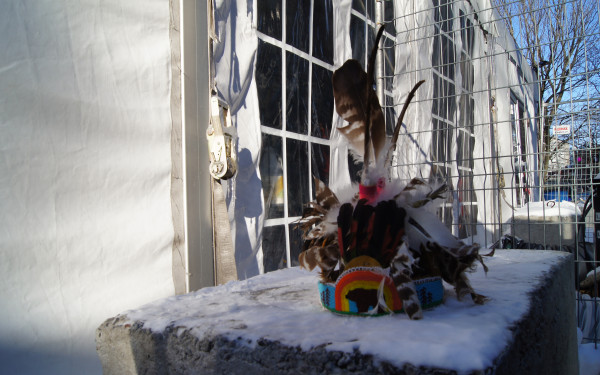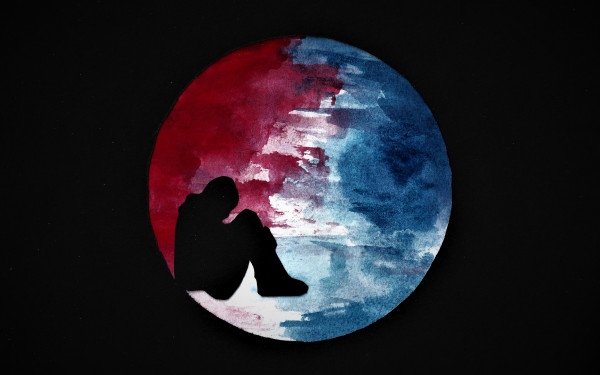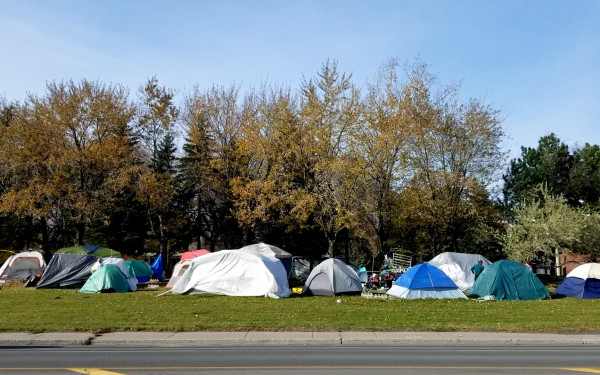A Laundry Service on a Mission
StreetSuds Looks to Help People Struggling with Mental Illness, Homelessness and Addiction
Pass a metal gate, walk through a back parking lot, look for the big blue door and listen for the rumbling of washers and dryers.
Located in a former garage off Parthenais St. and Ontario St., La Buanderue, or StreetSuds, is the only industrial laundry service in the city with a social mission.
The laundromat’s workers all receive welfare and struggle with mental illness or a recent history of addiction, as well as homelessness. Open since May 2012, StreetSuds is a one-year program supported by the St-James Drop-in Centre, which aims to prepare those at high risk of homelessness to return to the workforce.
If all goes well, the program will have its first graduate this winter, Kevin. The 30-year-old, who moved to Montreal from Thetford Mines, has schizophrenia and was unemployed for six years before joining StreetSuds early this year. The work has become routine for him, but it’s a welcome relief from life on the street.
Although StreetSuds is a relaxed environment, Kevin says it was difficult to re-adjust to the pace of working life.
“It’s strange,” he said. “Having not worked for years, it’s a little scary.”
The idea of graduating and getting a job still worries him.
“I’m afraid of returning to the street—it’s the stress of doing something new. I ask myself, ‘Will I be capable?’”
Kevin hopes to continue in the laundry business. Each graduate of StreetSuds is given a $1,000 bonus to help them get on their feet. Emploi-Québec pays participants a monthly allowance of $130.
In addition, the St-James Drop-in Centre provides them with a bus pass.
“I’m lucky,” Kevin said. “I’ll have a good opportunity to work after. It’s valorizing to work […] If I’m the first to graduate, it’ll be fun to be the first to have a job.”
Kevin’s choice of words said it all: not when, but if.
Stigmas
9web_797_1200_90.jpg)
A 2005 federal study cited by the Réseau d’aide aux personnes seules et itinérantes de Montréal estimates that 150,000 people nation-wide found themselves homeless at some point during the year, 30,000 of whom lived in Montreal.
Of course, even once a person finds stable housing, their troubles don’t necessarily end there.
“We found that members who found housing and became more stable with their mental illness and addiction were expressing the desire to get back to work,” said Sivan Havusha, a caseworker at StreetSuds. “But for this population it’s really hard to do so because of the stigma around mental illness, homelessness, and around the kind of people living in these volatile conditions.”
Unlike many other pre-employment programs, which focus on the nitty-gritty of landing a job such as CV writing, StreetSuds also offers counselling and life-skills training.
Once a week after their four-hour shift, employees meet one-on-one with a caseworker to discuss their goals. Twice a month, the program organizes life skill workshops, on subjects ranging from creating a budget to healthy living.
Building Confidence
StreetSuds isn’t only about combating the stigmas of homelessness. The program also tries to help participants rebuild their confidence after years of unemployment.
Some of those who walk through StreetSuds’ door have been out of work for as long as 20 years.
It’s a change from drinking alcohol and not thinking about tomorrow. —André, Streetsuds worker
“When you’re not in the workforce, you’re constantly being told you’re useless,” said program coordinator Alyshia Wagstaff. “It has a really big toll on people’s self-esteem and their confidence.
“Here, they have responsibilities and tasks they have to get done,” she continued. “We have rules. It really gives them a sense of pride to say, ‘Look, I’m getting up in the morning, and I’m able to get there on time, and I’m able to be proud of the work that I’m doing.’”
Nicolas, 42, burst into the laundry room carrying a 50-pound bag of linens.
“Woah, ça travaille fort ici,” he says to his co-workers, with a smile. In an interview, he explained that working at the laundry helped restore his sense of purpose.
8web_797_1200_90.jpg)
His colleague, André, who suffers from mental illness and is recovering from a cocaine addiction, agreed.
“It’s a change from drinking alcohol and not thinking about tomorrow,” he said.
A Social Enterprise
Like many new businesses, StreetSuds is still in the red. It gets funding from the federal Stratégie des partenariats de lutte contre l’itinérance, the Quebec government’s Programme de soutien aux organismes communautaires and through private donations.
By 2016-2017, however, StreetSuds director and recent McGill University graduate Wagstaff hopes the program will be earning enough money from sales to be self-sustaining.
“We’re not against relying on donations; it’s just that it creates a bit of an unstable situation,” she said. “You’re always having to re-apply [for grants] that can be cut at any moment.
“This program is a real way to create change that’s sustainable.”
For now, the laundry service counts three small hotels and a women’s shelter, the Old Brewery Mission’s Patricia Mackenzie Pavillion, among its clients. StreetSuds has left its short list of customers satisfied.
“Some people are hesitant to go with us, but the comment that we consistently get is that our quality is really good even compared to the big organizations,” said Wagstaff.
StreetSuds has partnered with the non-profit entrepreneur association Enactus Concordia for help on the business end. This year, a Concordia student is interning at the laundry service as part of the MBA program in Community Service Initiative.
Enactus has also helped with fine-tuning StreetSuds’ marketing strategy and improving its sales package.

0web_900_597_90.jpg)
_600_832_s.png)




_600_375_s_c1.png)